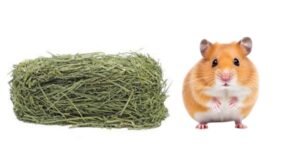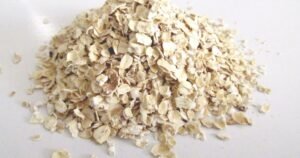Basic cage maintenance involves the daily task of cleaning and replacing food and water containers. To line the cage floor, you can use plain newspaper, which should be replaced daily to prevent the spread of diseases and illnesses. Additionally, on a weekly basis, it is essential to clean and disinfect the cage either with warm, soapy water or using a specialized avian cage disinfectant.
Love birds are great, colorful companions that add a wonderful splash of personality to your home. Their cheerful chirping and entertaining antics can turn any household into one brimming with joy. But like all living things, love birds require proper care in order to be healthy and happy. Without careful attention, they may become stressed or sickly.
Whether you’re just starting as a bird owner or have been looking after lovebirds for a while now, learning how to take care of them properly is essential for their well-being; in this blog post, we’ll cover everything you need to know about taking care of these precious little gems. From providing an appropriate diet to creating the perfect environment for them in your home, you’ll come away feeling confident that you’ve got all the information necessary to keep your lovebirds high-spirited.
Essential Tips to Take Care of Love Birds
Love birds are delightful creatures that bring joy to any home.
However, to ensure their wellness and happiness, it is important to provide them with proper care.
Here are eight essential tips that can help you provide the best care to your avian companions.

1. Provide a Roomy and Comfortable Cage
Your love bird’s cage is their home; it’s where they eat, sleep, play, and spend most of their time. Thus, it should be spacious enough for them to fly and move around comfortably.
Remember to keep the cage clean and free from any harmful elements, such as sharp edges or small, ingestible parts.
2. Maintain a Balanced Diet
Just like us, love birds need a balanced diet to stay healthy. This includes a mix of seeds, fresh fruits, vegetables, and special bird pellets.
Always provide clean water for your bird, and promptly remove any uneaten food to prevent it from spoiling.
3. Regular Doctor Check-ups
Regular vet check-ups are crucial for your loved bird’s health.
A professional doctor can spot any potential health issues early, ensuring that your pet gets the right treatment on time.
They can also give advice on diet and exercise based on your bird’s age, breed, and health status.
4. Social Interaction
Love birds are social creatures. They thrive on interaction, both with their species and with humans.
Spend time talking to your love birds, and let them out of their cage for supervised playtime. This helps to keep them happy and engaged, reducing stress levels.
Also, provide toys within their cage for mental stimulation. Remember, a happy bird is a healthy bird!
5. Mental Stimulation
Toys and playtime keep your love birds’ minds sharp. Try puzzles or toys that make them think and move. Swings, ladders, bells, and mirrors are good choices.
Changing the toys frequently helps t, oo. This will keep your lovebirds happy, active, and smart. It’s great for their health, and they will enjoy it!
6. Regular Exercise
Regular exercise is vital for love birds. Let them out of their cage daily to fly around in a safe area. This keeps their wings strong and their heart healthy.
Remember, exercise is not just good for their body, but for their mind too. It helps them stay happy and reduces stress.
7. Monitor Their Behaviour
Last but not least, keep an eye on your love bird’s behavior. Changes in behavior, eating habits, or appearance could indicate a health problem.
If you notice anything unusual, consult a vet immediately.
By following these tips, you can ensure your love bird remains healthy, happy, and vibrant.
Remember, taking care of a lovebird is a commitment, but the joy they bring to your life makes it all worthwhile!

The Optimal Diet for Love Birds
Feeding your love birds the right diet is crucial for their health and longevity.
This section will explore the essentials of a balanced lovebird diet, highlighting the importance of diverse food items and suggesting the best feeding practices.
1. Seeds and Pellets
Seeds are an important part of love birds’ diet; they provide the necessary nutrients. However, they should not be the sole component.
Bird-safe pellets are a good supplement, as they are specially designed to provide a balanced diet.
2. Fresh Fruits
Just as humans eat fruits, love birds also enjoy them. Fresh fruits like apples, bananas, and strawberries are good choices.
They offer vitamins and are tasty treats for your pet. Always ensure to wash the fruits thoroughly before feeding and remove any seeds to avoid choking hazards.
Remember, fruits should be part of a balanced diet, not the entire meal.
3. Leafy Greens
Leafy greens such as spinach, lettuce, and kale are great for love birds. They are packed with vitamins and minerals essential for their health.
Make sure to wash them thoroughly before giving them. Small, chopped pieces are easier for the birds to eat.
Always remove uneaten greens after a few hours to prevent them from spoiling.
4. Vegetables
Vegetables are key for love birds. They need them for health. Veggies like carrots, peas, and cucumbers are great.
They give birds good vitamins and minerals. Make sure veggies are washed well and cut small. Remove any uneaten veggies so they don’t spoil.
This way, your bird stays healthy and happy. Remember, a good diet means a healthy lovebird!
5. Clean Water
Clean water is vital for love birds. Always ensure that their water dish is filled with fresh and clean water. Change it daily to prevent bacteria build-up.
The water dish should also be cleaned regularly to keep it sanitary. This is important for your love bird’s overall health and well-being.
By providing a diverse diet that includes these elements, you can help ensure your love birds receive the nutrients they need to stay healthy and thrive.
Always consult with a vet for personalized advice regarding your love birds’ diet.

Understanding Lovebird Appearance and Behavior
Lovebirds are small, colorful birds known for their vibrant beauty. They usually grow to about six to seven inches long.
Their feathers are often bright and multicolored, with shades of green, orange, blue, and yellow being common.
Lovebirds have ort, blunt details and a strong, sharp beak suited to their speed-based diet.
As for their behavior, lovebirds are famously social and affectionate, which is how they got their name.
They love to interact with their human caregivers and other birds. They are very playful and enjoy having toys in their cage.
They also like to chirp and can be quite noisy when they are happy or want attention.
However, they can get moody or aggressive if they feel neglected or stressed. So, it’s important to give them regular attention and care.
By understanding their typical appearance and behavior, you can better care for your lovebird and enjoy their company.
Common Lovebird Health Issues and Their Treatments
Lovebirds can face several health issues. Here are some common ones and how to treat them:
1. Feather Plucking
Feather plucking is when a lovebird pulls out its feathers. It can be due to stress, boredom, or health problems like skin infections.
To treat it, find out the cause and fix it. If it’s due to illness, take your bird to a doctor.
2. Respiratory Problems
Lovebirds can suffer from respiratory problems. Symptoms include difficulty breathing, sneezing, and a runny nose.
These issues may be due to dust or poor air quality. To help, keep your bird’s cage clean and in a well-ventilated area.
If your bird still has trouble breathing, take them to a vet right away.
3. Beak and Feather Disease
This disease affects the beak and feathers of lovebirds. It can make the beak soft or cause color changes in feathers.
A doctor can diagnose this disease and provide treatment. It’s important to take your bird to regular vet check-ups to catch this early.
4. Eye Problems
Eye problems in lovebirds can include infection or injury. Signs include redness, swelling, or a closed eye.
If your bird’s eye looks unwell, get it checked by a doctor. Proper cleaning and diet can help prevent these issues.
Always ensure a safe and clean environment for your lovebird’s wellbeing.
5. Digestive Problems
Digestive problems can make lovebirds eat less or have loose poop. This can be due to bad food or sickness.
To treat, give your bird good food and clean water. If the bird is sick, a doctor can give medicine.
Finding Your Perfect Lovebird: Where to Buy
When you’re ready to welcome a lovebird into your home, it’s important to know where to get
one. There are several places you can look, each with these pros and cons.
1. Pet Stores
Your local pet store is a common place to buy a lovebird. These stores usually have a variety of birds to pick from.
However, not all pet stores take good care of their birds, so you should choose a store that is clean and treats its animals well.
2. Bird Breeders
A bird breeder is a good option if you want a young bird. Breeders know a lot about the birds they raise and can help you pick the right one for you.
They can also tell you about the bird’s parents and background.
3. Bird Shows
Bird shows are another place to find lovebirds. Here, you can see many different birds and learn a lot about them.
Some sellers at bird shows may even have rare or special types of lovebirds for sale.
4. Animal Shelters
Remember animal shelters. They often have birds that need new homes.
Adopting a bird from a shelter can be a good deed and bring you a lot of happiness.
Before buying a lovebird, make sure you are ready to care for it. Lovebirds need a lot of care and attention.
They also live for a long time, so buying one is a big decision.
Conclusion
How To Take Care Of Love Birds? Caring for lovebirds is a task that requires dedication, attention, and love. By providing nutritious food like fresh fruits, vegetables, and clean water, you can keep your lovebird healthy. Cleaning their cage regularly helps to prevent diseases and ensures a hygienic environment. Lovebirds are social birds who love to play, so toys can help keep them happy. Regular checkups with a vet are also crucial to monitor their health and treat any potential issues early. Understanding their behavior is key to ensuring they feel safe and loved. Lastly, remember that each lovebird has its personality and needs. By recognizing this, you can create a caring environment tailored to your lovebird’s unique character. Care for your lovebird as you would any family member, with patience, understanding, and a whole lot of love.
FAQs
How long do lovebirds live?
In captivity, lovebirds typically live between 10 to 15 years if given proper care. However, some have been known to live up to 20 years. Their lifespan depends on their diet, exercise, mental stimulation, and overall health care. Regular check-ups with a vet can help ensure they live a long, healthy life.
Can lovebirds talk?
Lovebirds are not known to be great talkers like some other parrot species. They can mimic some sounds or words, but their abilities are usually limited. Their main form of communication is through chirping and body language. However, each lovebird is unique, and some may surprise with their mimicking skills.
How do you train lovebirds?
Training lovebirds requires patience and consistency. Start by hand-feeding them. This builds trust. Next, teach them to step up onto your finger. Command them gently and reward them when they do it. Over time, you can teach them more tricks. Remember, always use positive reinforcement. Treats and praises work well. Please don’t force them. Training should be fun for your lovebird.
Can lovebirds survive alone?
Lovebirds are social creatures, and they thrive on companionship. They can technically survive alone but can easily get lonely and depressed without a partner or frequent interaction with their human caretaker. It’s best to keep lovebirds in pairs or ensure they get plenty of time and attention from their human family.
How do I make my lovebird active?
Lovebirds are naturally active and enjoy playing. To make your lovebird more active, provide plenty of toys in their cage for them to play with. Regularly change these toys for variety. Let them out of their cage under supervision for flight and playtime. Remember, a safe and engaging environment promotes active behavior.
Are lovebirds easy to keep?
Lovebirds can be easy to keep if you know their needs. They require a clean cage, fresh food and water, and social interaction. They also need toys for mental stimulation. Regular vet check-ups are important for their health. With proper care and attention, lovebirds can be a wonderful addition to your home.
















